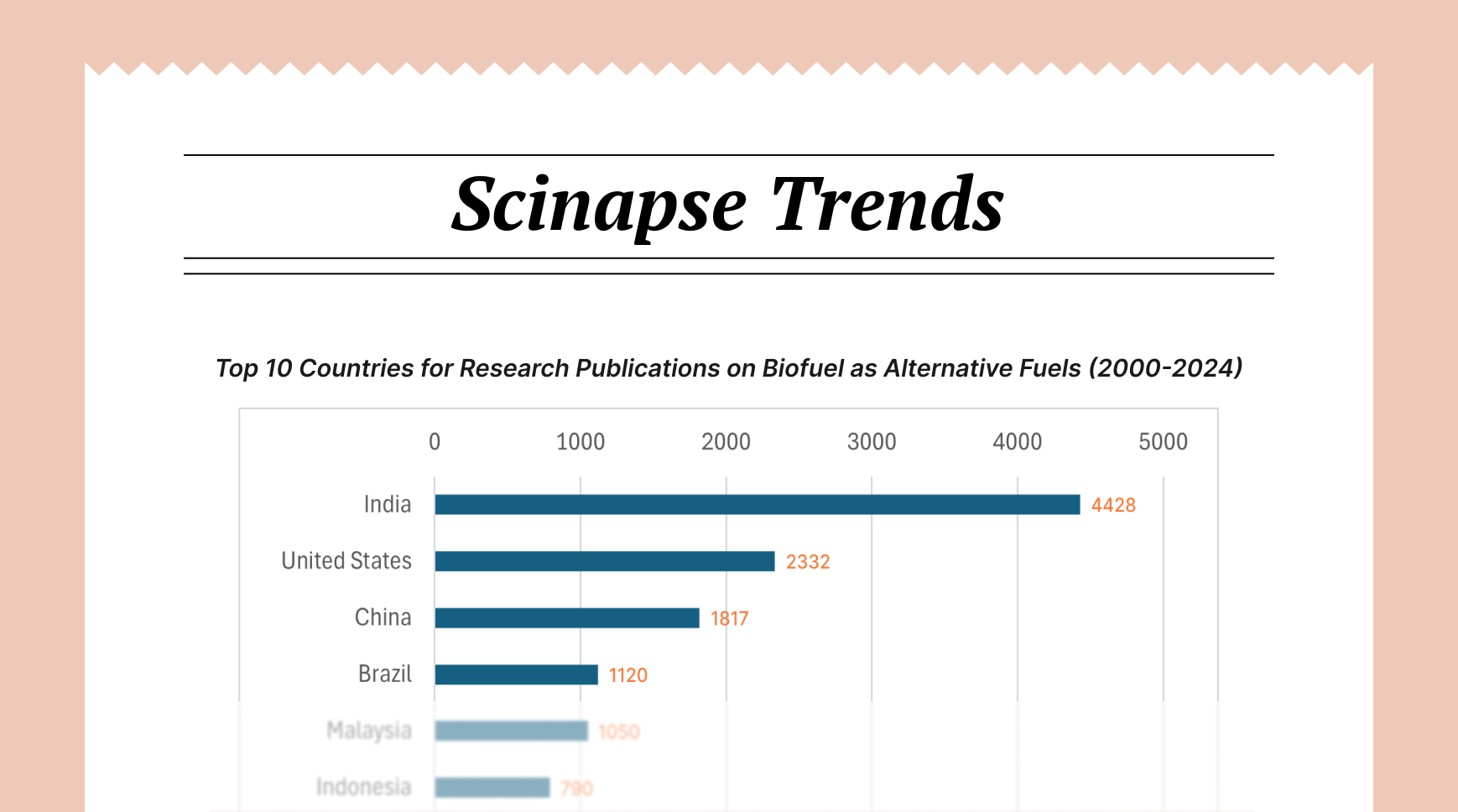How to Use AI to Enhance Research Discovery – Selecting the Best AI Tool for Literature Search

While researchers can access large volumes of information, navigating this knowledge has become increasingly daunting. With artificial intelligence (AI) the way we discover, analyze, and utilize research has become smarter, faster, and a more reliable method to access and evaluate information.
Before diving into the role of AI, it is important to understand the typical stages of research discovery. In the early stages, researchers gather information from various sources, from field studies to past research. Their goal is to collect insights, identify trends, and find gaps in the existing knowledge that can lead to innovative work.

The critical factors for effective research at this stage include:
- Efficient access to information: Researchers need to quickly locate relevant data or studies from massive volumes of literature.
- Precision in finding targeted results: Specificity is key to uncovering insights that align with research goals.
- Trustworthy data: Researchers must be confident that their sources are credible and well-vetted.
Unfortunately, traditional methods of research discovery are often slow, with many hours spent navigating databases, filtering irrelevant content, or reviewing outdated studies.
Scinapse Research Intelligence: Best AI Tool for Quick and Reliable Research Discoverability
Scinapse is built specifically to address the challenges researchers face when sifting through vast amounts of academic data. Here’s how Scinapse enhances research discoverability:
- Comprehensive Dataset and Advanced Search Capabilities
Scinapse’s research database covers 99% of SCIE journal content and includes over 290,000 influential researchers and 38,800 research fields. By leveraging AI, Scinapse provides highly relevant search results tailored to specific research goals. The platform draws from several open data sources, including PubMed, OpenAlex, and the Microsoft Academic Graph, which allows researchers to access a vast range of scholarly publications. - AI-Powered Data Collection and Processing
Scinapse utilizes proprietary algorithms to process large volumes of research data, ensuring precision and relevance. Its AI-based field analysis assesses each paper’s research agenda, categorizing it into more than 15 specific fields. This system allows researchers to identify and track trends across highly focused domains. - Accurate Author Disambiguation and Research Integrity
One of the major challenges researchers face is accurately identifying authors across various publications. Scinapse uses a sophisticated disambiguation algorithm that considers factors such as research affiliation, publication timing, and citation relationships to ensure precise author identification. This process continuously refines itself through machine learning, improving its accuracy over time. - Identifying Research Trends and Influential Authors
Scinapse goes beyond traditional citation metrics by analyzing citation relationships within specific research fields. This allows researchers to track the evolving influence of key papers and authors. Whether identifying emerging research trends or locating influential researchers, Scinapse provides tools that make the discovery process faster and more insightful. - Ensuring Data Integrity and Trustworthiness
Scinapse employs stringent verification processes to maintain the highest standards of data integrity. By filtering out errors, eliminating suspicious data, and constantly updating its datasets, Scinapse guarantees the trustworthiness of its information. Researchers can rely on the platform to provide accurate and high-quality data for their studies.
How to Effectively Leverage AI Tools Like Scinapse to Improve Research Discoverability And Optimize Literature Search
- Optimizing Search Efficiency Scinapse allows users to filter search results based on key metrics, such as keywords, author affiliations, journal impact factor, publication year, and country. By applying these filters, researchers can narrow down the vast database to find the most relevant studies, saving valuable time.
- Tailored Searches Based on Research Goals Scinapse provides tailored search results by analyzing specific fields and research agendas, making it easier to find papers that directly align with research objectives. Researchers can customize their search based on factors such as trending topics or emerging research fields.
- Tracking Influential Researchers and Peer Reviewers One of the standout features of Scinapse is its ability to track the most influential authors in a given field, helping researchers identify experts in their field. The platform also assists in finding peer reviewers who maintain high research integrity, which is essential for validating new findings.
- Staying Updated with Real-Time Alerts Scinapse offers current updates on research trends, allowing researchers to set alerts for new publications relevant to their field. This feature helps users stay on top of emerging developments and ensures they are always working with the most current information.
AI and the Future of Research Discovery
AI’s role in research discovery is poised to expand as technology advances. Tools like Scinapse continuously improve by incorporating more data sources and refining their algorithms. However, it’s important to maintain a balance between AI-driven automation and human oversight. While AI can speed up the research process, human critical thinking and ethical standards remain essential to maintaining academic rigor and integrity.
Book Your Free Scinapse Demo and Begin Your Research Discovery Effortlessly!
Author: Uttkarsha B
- AI-Ethicist and STM Research & Publishing Expert
Never re-search again.
Scinapse is made by researchers for researchers.
Join the next generation of research at ⏯️ https://scinapse.io/
Pluto Labs
Pluto Labs helps researchers focus on their research by improving several inefficiencies in the academic research process. We offer data-driven insights from academic papers, allowing users to easily obtain review-level results for their desired range of papers.
https://pluto.im/





Comments ()